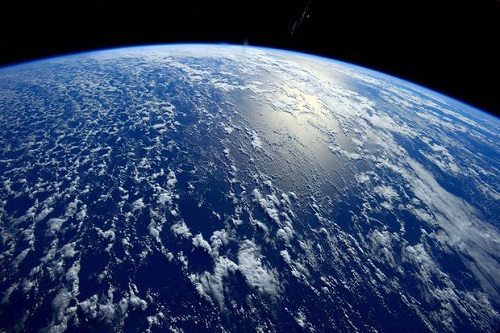
Story of the Week... La Niña Update... Toon of the Week... Quote of the Week... Graphic of the Week... SkS in the News... Photo of the Week... SkS Spotlights... Video of the Week... Coming Soon on SkS... Poster of the Week... Climate Feedback Reviews... SkS Week in Review... 97 Hours of Consensus...
Humans causing climate to change 170 times faster than natural forces
Researchers behind ‘Anthropocene equation’ say impact of people’s intense activity on Earth far exceeds that of natural events spread across millennia

Photograph: ISS/NASA
For the first time, researchers have developed a mathematical equation to describe the impact of human activity on the earth, finding people are causing the climate to change 170 times faster than natural forces.
The equation was developed in conjunction with Professor Will Steffen, a climate change expert and researcher at the Australian National University, and was published in the journal The Anthropocene Review.
The authors of the paper wrote that for the past 4.5bn years astronomical and geophysical factors have been the dominating influences on the Earth system. The Earth system is defined by the researchers as the biosphere, including interactions and feedbacks with the atmosphere, hydrosphere, cryosphere and upper lithosphere.
But over the past six decades human forces “have driven exceptionally rapid rates of change in the Earth system,” the authors wrote, giving rise to a period known as the Anthropocene.
“Human activities now rival the great forces of nature in driving changes to the Earth system,” the paper said.
Steffen and his co-researcher, Owen Gaffney, from the Stockholm Resilience Centre, came up with an “Anthropocene Equation” to determine the impact of this period of intense human activity on the earth
Humans causing climate to change 170 times faster than natural forces by Melissa Davey, Guardian, Feb 12, 2017
Journal reference: The Anthropocene Review, doi: 10.1177/2053019616688022
Also see:
Simple equation shows how human activity is trashing the planet by Owen Gaffney, New Scientist, Feb 10, 2017
Well, that was quick! The ocean surface in the tropical Pacific is close to average for this time of year, putting an end to La Niña, and forecasters expect that it will hover around average for a few months. Let’s dig in to what happened during January, and what the forecast looks like.
February 2017 ENSO update: bye-bye, La Niña! by Emily Becker, NOAA's Climate.gov, Feb 9, 2017
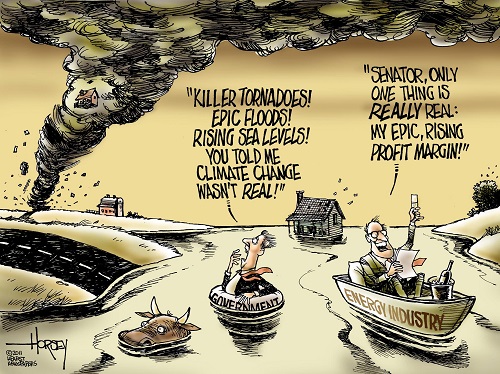
As Gavin Schmidt, Director of the Goddard Institute for Space Studies and Principal Investigator for the GISS ModelE Earth System Model, put it, “In science, nothing is ever known perfectly. Is there remaining uncertainty in the exact value of gravity? Yes. But to something like the fourth decimal place. It doesn’t matter. So the question is: Is the remaining uncertainty relevant to any policy decision anyone would want to make? And the answer is: no.”
How the New Climate Denial Is Like the Old Climate Denial: Both are excuses for inaction. by Meehan Crist, The Atlantic, Feb 10, 2017
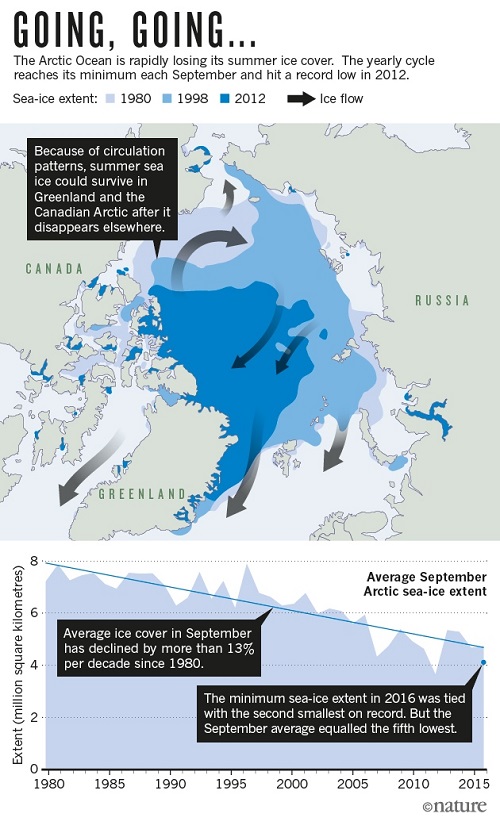
Arctic 2.0: What happens after all the ice goes? by Julia Rosen, Nature, Feb 8, 2017
John Cook's article, What do gorilla suits and blowfish fallacies have to do with climate change? originally published in the Conversation US has been reposted on a number of news sites including: SFGate,
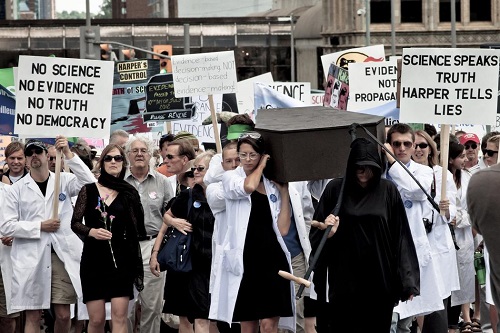
From the "Death of Evidence" rally in Ottawa, 2012. All images by Richard Webster
Canada’s Censored Scientists Are Helping American Researchers Resist Trump by Stephen Buranyi, Motherboard, Feb 9, 2017
The Stockholm Resilience Centre is an international research centre at Stockholm University that focuses on the resilience of social-ecological systems.
The centre is a transdisciplinary initiative between Stockholm University and the Beijer International Institute of Ecological Economics at The Royal Swedish Academy of Sciences. It also offers a Masters programmes on social-ecological resilience and has its own PhD Research school.
Research at the Stockholm Resilience Centre is transdisciplinary but organized within the following areas:
Source: Wikipedia
NOAA vs Mail on Sunday — FACT CHECK, potholer54, YouTube, Feb 9, 2017
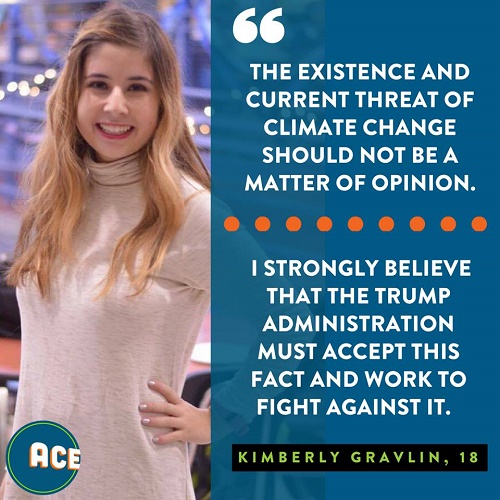
Alliance for Climate Education
Climate Feedback asked its network of scientists to review the article, The big melt: Global sea ice at record low by Doyle Rice, USA Today, Feb 8, 2017
Twelve scientists analyzed the article and estimated its overall scientific credibility to be ‘very high’.
Click here to access the detailed review.
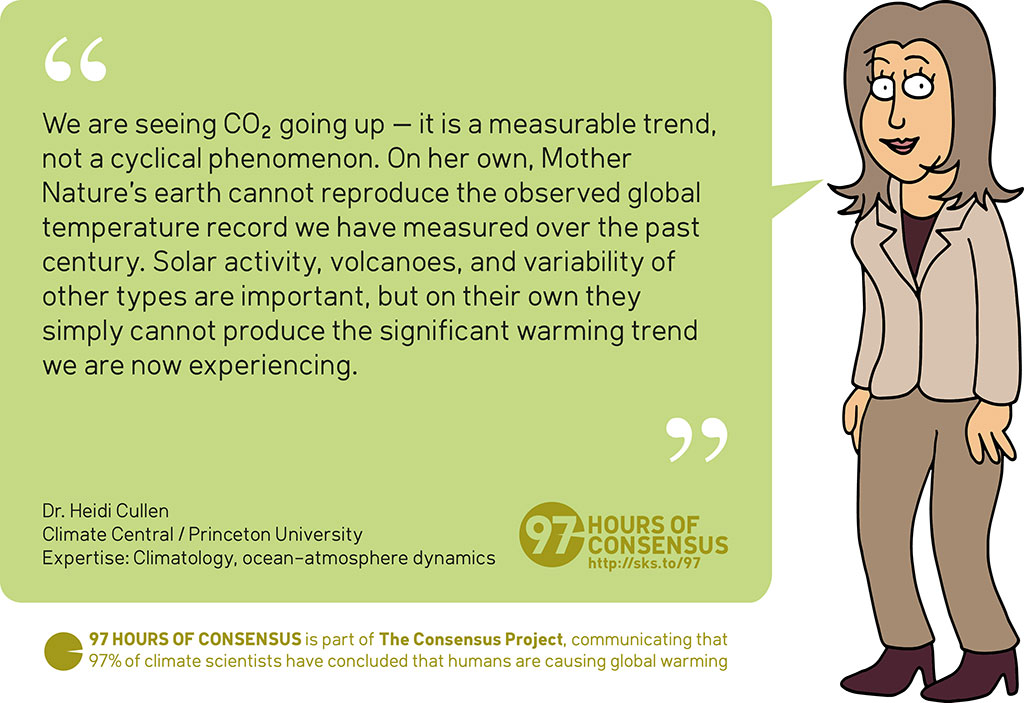
Heidi Cullen's bio page & Quote source
High resolution JPEG (1024 pixels wide)
Posted by John Hartz on Sunday, 12 February, 2017
 |
The Skeptical Science website by Skeptical Science is licensed under a Creative Commons Attribution 3.0 Unported License. |